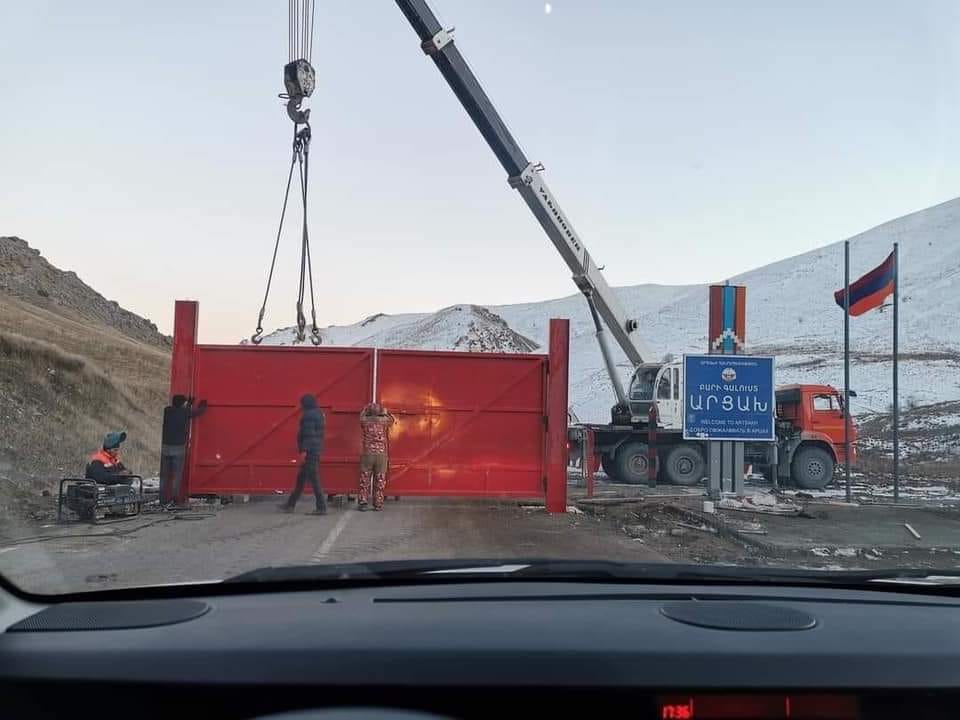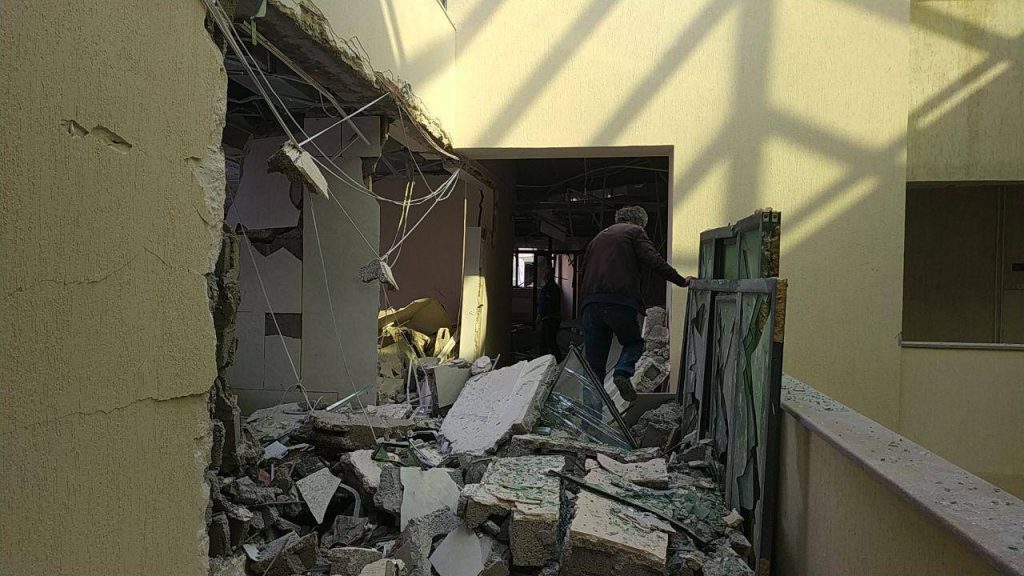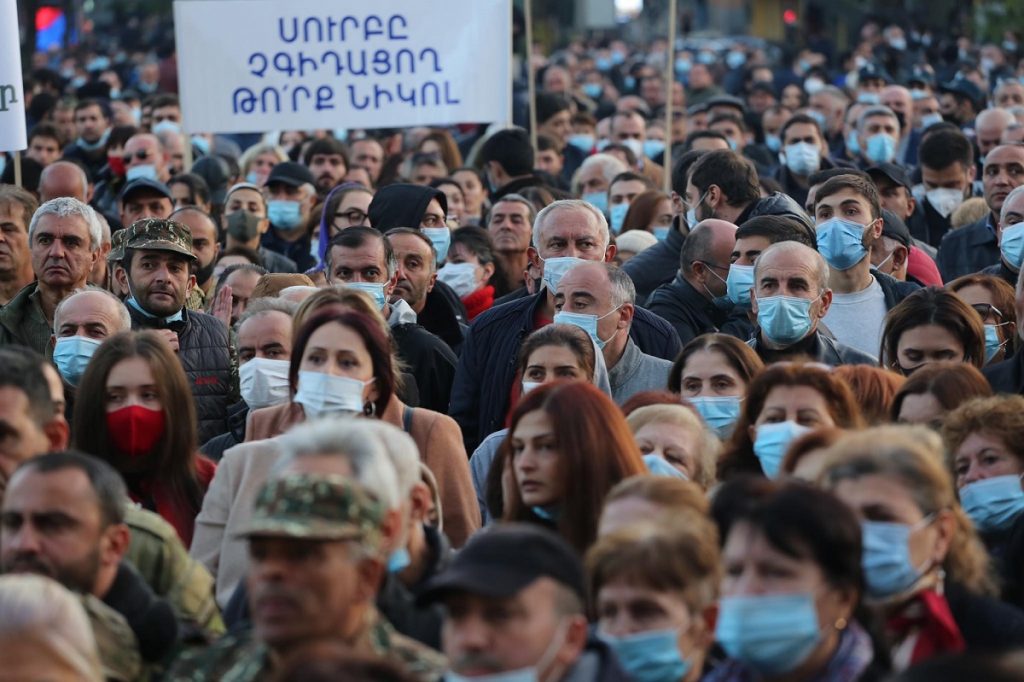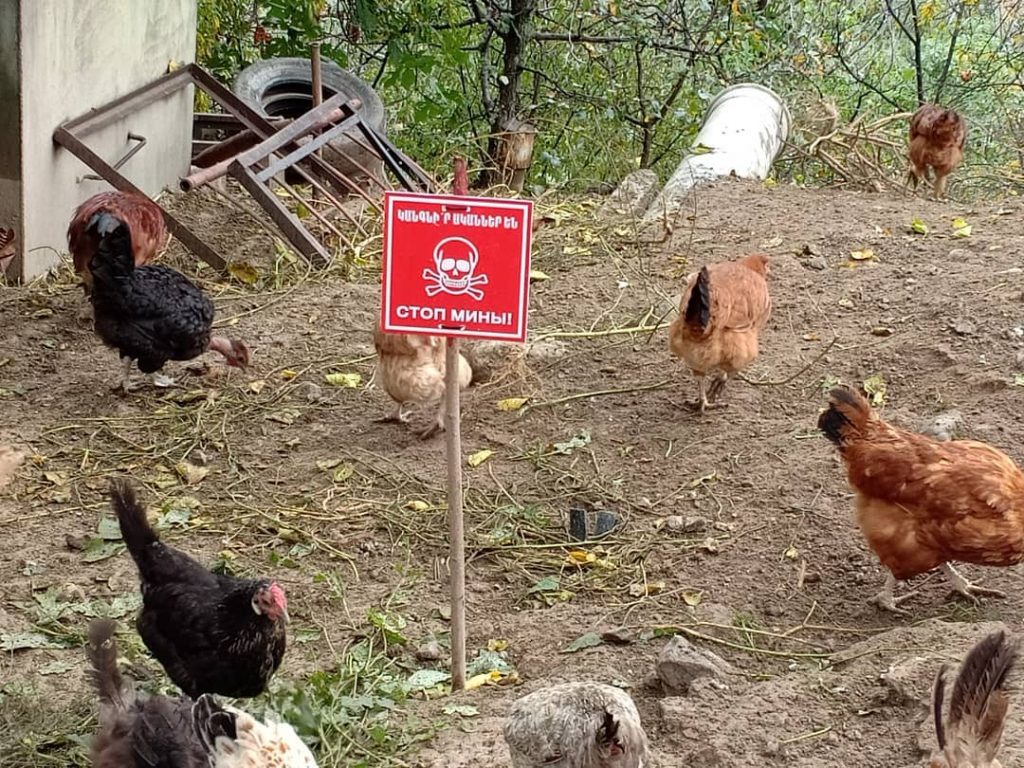Op-ed: What's next in Armenia – loss of sovereignty or global integration?
The main provisions of the trilateral truce on Karabakh, signed on November 9, 2020 by the heads of Armenia, Azerbaijan and Russia, were fulfilled on time: by December 1, the Armenian side had returned to Azerbaijani control three regions adjacent to Nagorno-Karabakh.
What’s next? In Armenia, the future seems murky. Op-ed for JAMnews by political commentator Naira Hayrumyan.
Where will the real boundaries now be?

The 44-day war (September 27-November 9, 2020) has completely changed the alignment of forces in the South Caucasus, which had been preserved for the last 26 years since the first Karabakh war.
Armenian Karabakh was unable to withstand the massive offensive mounted by Azerbaijani forces supported by Turkey.
Almost 70% of the territories that had been controlled by the Armenian forces of Karabakh since the 1991-94 war were ceded to Azerbaijan. Moreover, the seized territories also included the Hadrut region, parts of the Shushi, Askeran, Martuni and Martakert regions of the former Nagorno-Karabakh Autonomous Region. The city of Shushi was also lost.
Now the question of establishing real boundaries has arisen with all urgency.
There are no legal grounds for determining some of them; in fact, this issue will be resolved by force and resistance.
- Terms of the Karabakh truce – corridors, boundaries and peacekeepers
- Armenian veteran diplomat: “Why Armenia lost the war for Karabakh”
- Putin calls on countries of CSTO military bloc to support Armenian PM
Some say that the borders of the Nagorno-Karabakh Autonomous Region of Azerbaijan during the Soviet period should be taken as a basis. But in this case, the question arises – what to do with the territories of the region that are now under the control of Azerbaijan?
Others suggest basing the borders on the actual front line by the time the agreement is signed, or appeal to Russia: since it has taken over mediation, then it should be the arbiter in border issues.
After the war, the border has become a problem for Armenia itself.
There have already been several incidents when the Azerbaijani military claimed the rights to the sovereign territory of Armenia – in Sotk, where a large gold deposit is located, as well as in the Syunik region.
The borders of Armenia itself have also grown by a thousand kilometers.
Until now, according to the 1997 agreement, the borders of Armenia with Iran and Turkey were guarded by Russian border guards, there are Armenian border guards on the border with Georgia, and Armenian troops on the Armenian-Azerbaijani border.
Who will now stand on the real Armenian-Azerbaijani border is still unclear.
Prime Minister Nikol Pashinyan said that they will be guarded by the Armenian army, and it should be an interstate border, not a front line.
The practical anarchy in Armenia, which developed after the war and the defeat in Karabakh, led to the fact that border issues are being resolved hastily, sometimes at gunpoint.
As a result, Armenians were deported from many Karabakh villages 10 days after the end of hostilities, and they were given only a few hours to collect their things.
Who will decide the issues of border demarcation and delimitation is still unknown. For this it is necessary to conclude a peace treaty, which is still far away,
And the borders, apparently, will change more than once, since it is obvious that the tripartite agreement is not a final document.
Russia has sent troops to Karabakh – can integration or recognition follow?
Since the war, analysts are trying to identify winners and losers. On the surface, the victory is for Azerbaijan, and the Armenian side the loser. But many say that Russia won the most, as Moscow has finally brought troops into Karabakh.
The Karabakh conflict differed from other post-Soviet conflicts in that there was no direct participation of Russia in it. Moscow did not recognize Karabakh (in contrast to South Ossetia and Abkhazia), and could not achieve the entry of its troops.
Now, after the Russian-Turkish agreement reached behind the backs of the United States and France, Karabakh has become a ‘common’ Russian conflict.
Therefore, the corresponding development of events can now be discussed.
In particular, many talk about the possibility of an ‘Abkhaz way’ for Karabakh, with Russia recognising its independence. Or at least to distribute Russian passports en masse there – in order to then protect the rights of their subjects.
Another discussed perspective is the integration of Armenia into the Russian space.
Armenian media write that Russia stopped the war in exchange for Prime Minister Nikol Pashinyan’s consent in annexing Armenia into the Union State of Russia and Belarus.
There is also a prospect – to change the ethnic composition of the population of Karabakh and then hold a referendum on the status.
This is possible if Turkey and Azerbaijan begin to intensively populate the occupied territories of Nagorno-Karabakh, including by Sunni mercenaries.
If the Azerbaijani population makes up an impressive percentage there, in the event of a plebiscite, Russia may lose the opportunity to incorporate Karabakh into its space.
There are several months left until the 100th anniversary of the Russian-Turkish Moscow Treaty (March 16, 1921), by which these two countries divided Armenia and the Caucasus as a whole.
And again Russia and Turkey divided the region – apparently for the next 100 years.

Armenia may lose some of its sovereignty
After the trilateral agreement, Nikol Pashinyan, who signed the surrender and earned the title of a traitor, is holding on by a thread.
And is holding on now, apparently, only because the opposition does not offer anything new.
17 opposition parties, by a joint decision, gave Pashinyan a deadline until 12:00 on December 8 to voluntarily resign. Otherwise, they promise to force him to do so.
Former Prime Minister Vazgen Manukyan has been proposed as interim prime minister. According to the opposition’s plan, he will create a government of national accord, and in six months or a year he will hold early parliamentary elections.

At the same time, the opposition:
- Does not dispute the legality of the tripartite agreement
- Does not protest against the introduction of Russian troops into the region and the dominant role of Moscow
- Does not mention the independence of Karabakh and, moreover, the idea of the reunification of Armenia and Karabakh
By the way: on December 1, 1989, a joint declaration of the Supreme Councils of Armenia and Nagorno-Karabakh on ‘reunification’ was adopted.
Over the past 30 years since then, the Armenian parliament has never discussed the possibility of implementing this declaration.
Both Russian President Putin and French Foreign Minister Le Drian reminded Yerevan of this.
After the end of the war, the upper and lower chambers of the French parliament adopted resolutions calling on the country’s government to recognize the independence of Nagorno-Karabakh.
However, the French Foreign Minister noted that Armenia did not apply to Paris with such a request.
Analysts suggest that Armenia, with relief, dropped the responsibility for Karabakh onto Russia and Azerbaijan. And now it can free its hands for regional cooperation and development, which, as foreign politicians have argued for many years, was hindered by the Karabakh problem.
Will the region open up and start living together again?
Armenian PM Pashinyan says the only ‘achievement’ of the truce for the Armenian side is the possibility of opening regional communications, and the restoration and development of economic ties, but many in Armenia are skeptical.
First, Turkey and Azerbaijan, which have been blocking the borders of Armenia and transport corridors for many years, can do so again at any time.
Secondly, in Armenia they fear the absorption of the small Armenian market by predatory neighbors.
Thus, there are two radically different opinions:
- The opening of communications will lead to the loss Armenian statehood, since we will not withstand the competition and temptations
- Armenia will finally return to the real world, where people of various nations and confessions live and trade together
Most likely, something in between will happen – Armenia will really open up for other countries, including for unfriendly Turkish and Azerbaijani capital. And this in some clusters can really lead to the loss of sovereign positions.
In general, both in Karabakh and in Armenia, one will have to learn to live in the world again.
This will be, perhaps, one of the results of this war – and a trigger for the future region.
The conflict in the early 1990s resulted in almost complete ethnic segregation. For 26 years there have been almost no contacts between Armenians and Azerbaijanis; the culture of living together and cooperation has been lost.
Now people will have to learn again to see each other not as enemies, but as neighbors.
And it will be difficult.



















